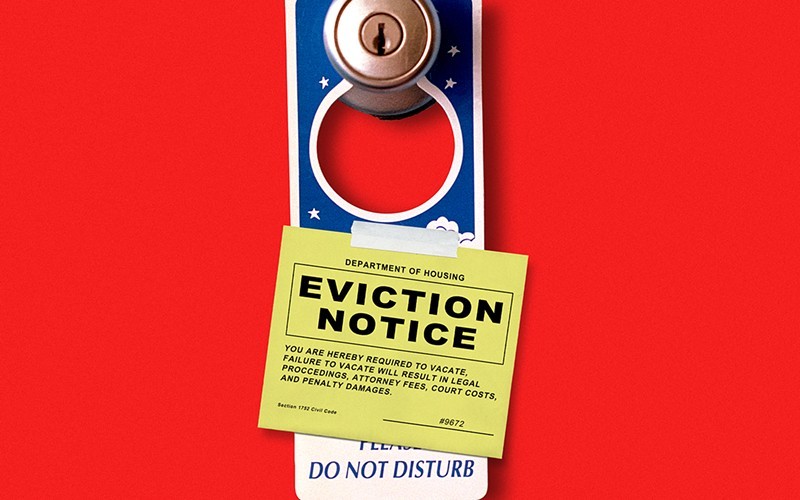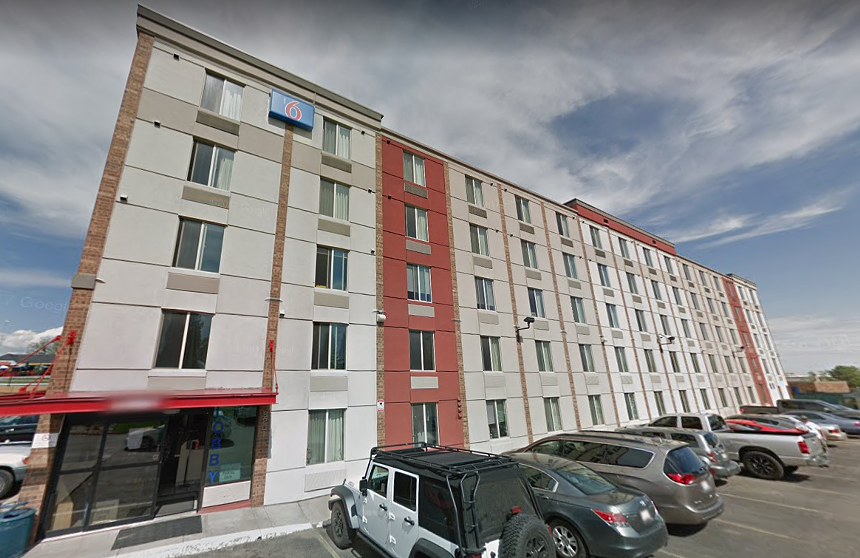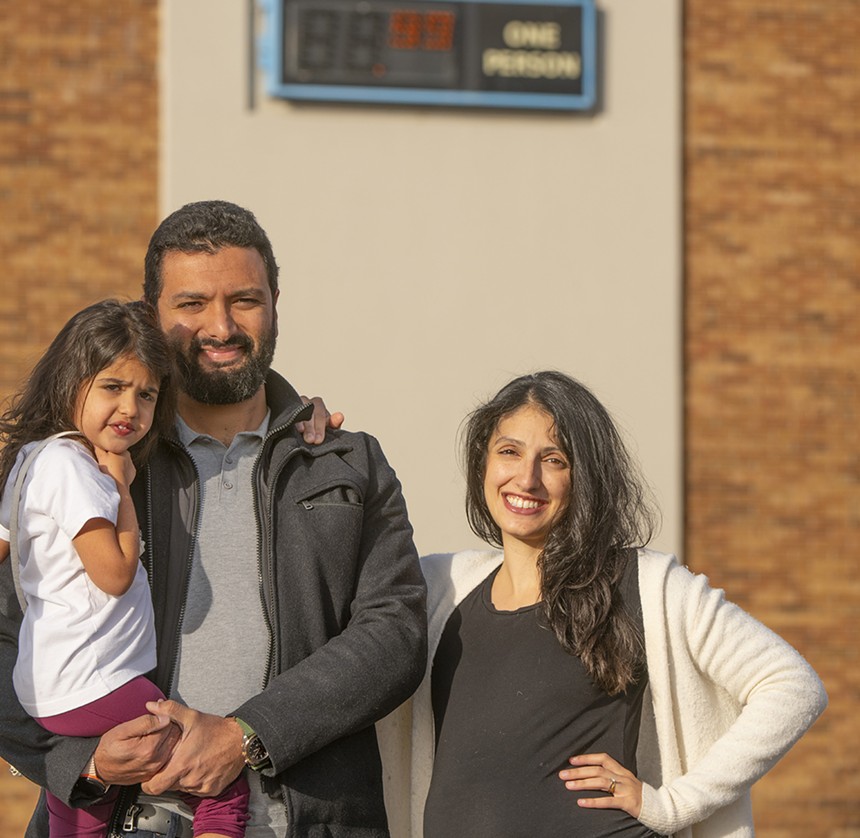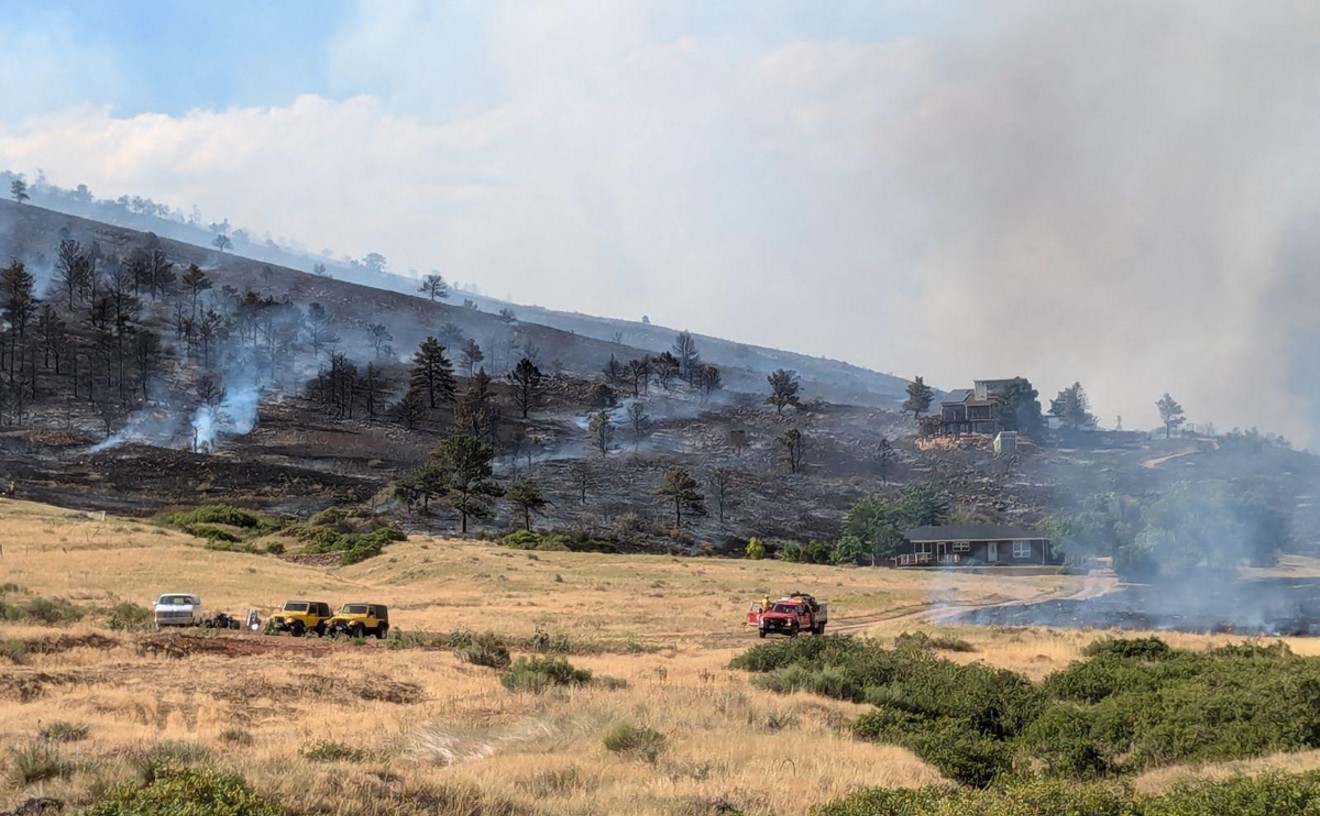Neza Bharucha, a licensed psychiatrist who owns the 129-unit Motel 6 at 9201 East Arapahoe Road in Greenwood Village with her husband, says the law is discriminatory and claims that city officials used law enforcement to retaliate when she tried to find ways around it.
"I truly feel that what they are doing is wrong," Bharucha says. "I don't understand how a suburb can ask this population just to leave its city. It just feels very wrong."
Since 2019, Bharucha has been working with homelessness service providers such as Colorado Coalition for the Homeless to offer her motel as a temporary shelter for homeless individuals and families. According to the lawsuit, Brarucha has "served more than 2,800 vulnerable families, most or all of whom had or were associated with disabilities."
The lawsuit was filed with the U.S. District Court for the District of Colorado on August 1 by Killmer Lane LLP; it charges that Greenwood Village's actions violate federal and constitutional law, including the Americans With Disabilities Act.
“The affluent white suburb of Denver called Greenwood Village does not like poor people with mental illness staying in hotels in their fair little village, so they have passed this ordinance to keep people with mental illness out of their hotels,” says attorney David Lane in an announcement of the suit. “This is a violation of the Constitution and the Americans With Disabilities Act and we will fight it in federal court.”
According to the suit, "Greenwood Village routinely approves exceptions to the 29-day ordinance for corporate guests. Such stays technically violate the ordinance."
But according to Bharucha, her motel is the only facility the city has targeted. "If there was a company that was staying in a room, they could stay for more than 29 days. This just seems very, very discriminatory," Bharucha says. "People who are homeless and have disabilities, they don't want them in their city."
The 29-day ordinance displaced homeless residents like Sue Sanders, who lived in Bharucha's Motel 6 as long as she could and then wound up living in her car. She killed herself in that car two summers ago.
"Sue Sanders didn't have any place to go. It was really tragic," Bharucha says. "She had to go back to living in her car, and I think she just got worn out and she got tired. She was really just tired of living in her car again, and I don't blame her. She was such a nice woman. She just had tragic life events happen to her, and I think ultimately that's what happens with this ordinance."
Also plaintiffs in the suit are the Zarrin Hospitality Group, the Motel 6 franchisee that Bharucha's husband runs, and the Community Economic Defense Project, a Denver-based group of lawyers that works with families that have been evicted or face eviction. Greenwood Village requires the 29-day limit "for reasons of health, safety and welfare,” according to the ordinance, which is the only one of its kind in Colorado.
When the Greenwood Village City Council passed the 29-day limit in 2014, it created an exception for hotels or motels with a written contract with a "governmental, charitable or insurance agency to house families in crisis who are receiving temporary housing assistance from said governmental, charitable or insurance agency," according to the ordinance.
Bharucha says she tried to use this exception to continue sheltering homeless residents like Sanders, partnering with CCH in 2019 to accept vouchers and allow homeless and disabled guests to stay for more than 29 days. She used written contracts, including leases that outlined community policies for CCH guests to follow. According to the lawsuit, she "squarely" met the exception of the ordinance, but the city pressured her to stop.
In March 2020, John Jackson, the Greenwood Village city manager, sent Bharucha a letter warning that she was violating the ordinance because her motel isn't a medical facility, according to the lawsuit. Jackson also called on then-Denver Mayor Michael Hancock to cancel the partnership with CCH, "and the partnership was canceled," the lawsuit notes.
A month later, Bharucha formed a new partnership with SAFER, an initiative supported by Mental Health Colorado, to offer 23 rooms at her motel for two years as a temporary shelter for people suffering from mental health problems or drug addiction.
Greenwood Village tried to stop that partnership in April 2021, when City Attorney Tonya Haas Davidson sent a letter to Bharucha saying that her hotel couldn't be used for "rehabilitation or counseling services."
Bharucha went ahead and formed another partnership that May with Second Chance, an Aurora nonprofit, to house homeless individuals with mental health and addiction problems. In August 2022, Greenwood Village issued a court order demanding "names, dates, how long people have stayed at any organization I've worked with," Bharucha recalls. She appealed the order.
"We're the startup hotel for so many of these programs," Bharucha says. "All this time, I believe we're truly abiding by this exception. We're partnering with an organization that's helping a family in crisis.
According to the lawsuit, the city has been "conducting police surveillance at the motel on a daily basis for years." In May 2023, Greenwood Village served Bharucha with a criminal summons for violating the city's 29-day law. Along with the summons, Greenwood Village handed Bhuracha and her lawyers 2,200 pages of information about her motel that it had collected from surveillance.
But an 18th Judicial District Court judge determined that Greenwood Village couldn't criminally charge Bharucha or force her to give up records.
"They just wanted to intimidate me," Bharucha says. "Well, it worked. It worked to what extent they wanted: SAFER and Second Chance left our hotel."
"Greenwood Village is willing to use any legal tools in its arsenal to exclude marginalized people from its wealthy white suburbia," the lawsuit reads. "Ms. Bharucha continues to feel intimidated by the constant daily police presence at the motel."
Although CCH had to end its partnership with the motel in 2020, the nonprofit sides with Bharucha. Cathy Alderman, CCH spokesperson, calls the ordinance "heartless," adding that it's "cruel and discriminatory against people experiencing homelessness, especially families in crisis who cannot often access limited shelter opportunities."
According to Alderman, households need sixty days "to stabilize and get enough resources to obtain housing." Motels are "much more effective and compassionate than forcing people to sleep outside, in cars, or in large congregate shelters where families might be separated," she adds.
"In Denver’s extremely high-cost and limited supply housing market, it can take months for families to find affordable and available housing," Alderman says. "Neza Bharucha and the Motel 6 have helped to provide lifelines for many individuals and families who have entered the cycle of homelessness because of an unexpected life event or an eviction."
According to Alderman, households need sixty days "to stabilize and get enough resources to obtain housing." Motels are "much more effective and compassionate than forcing people to sleep outside, in cars, or in large congregate shelters where families might be separated," she adds.
"In Denver’s extremely high-cost and limited supply housing market, it can take months for families to find affordable and available housing," Alderman says. "Neza Bharucha and the Motel 6 have helped to provide lifelines for many individuals and families who have entered the cycle of homelessness because of an unexpected life event or an eviction."
At its meeting on August 5, the Greenwood Village City Council voted to remove the exception that allows motels that contract with governmental and other agencies to let people stay past 29 days.
According to Bharacha, without that exception she'll have to evict 25 families from her motel.
Facing that threat, Bharucha finally decided to sue. "I realized they're not going to leave us alone," she says. "If we keep working with these organizations, they're going to keep coming after us, whether it's harassing us with criminal charges, bringing us into police meetings or just removing the exception. They're just not going to leave us alone."
Her main goal is to get Greenwood Village to end the harassment, but she also hopes that winning the suit will restore the exception to the 29-day ordinance. Even better would be eliminating the ordinance altogether.
"Honestly, my main goal is that they will stop, that I can work with organizations, that I don't have to be continuously scared when I'm not doing anything wrong," she says. "I feel like we're genuinely contributing to society by being a hotel that steps up. It is so hard for organizations to find hotels to begin with that will take this population. I just want them to allow us to continue to do the good that we're doing."
The lawsuit asks the court to strike down the ordinance through injunctive relief or at least allow an exception to the ordinance for people with disabilities. The plaintiffs aren't currently looking for damages, but that could change, because "there definitely was a monetary loss when SAFER left us," Bharucha says. "That was real revenue that was lost."
But the money "doesn't mean as much to me as I really just want to be able to continue working with these organizations," she adds."The part that honestly bothers me the most is I truly feel it is so wrong that they are allowed to say who can stay in their city and who can't. That's what I want to change."
The City of Greenwood Village "does not comment on pending litigation," according to Garrett Graybeal, a spokesperson for the city.
This story has been updated to reflect the vote of Greenwood Village City Council on August 5.















